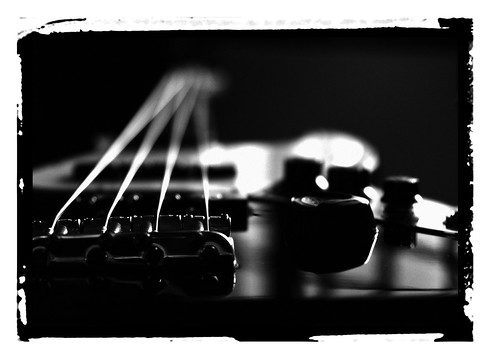A P90 pickup can be a solid choice for jazz players, especially if your tone is on the bluesy or funky side of things. We’ll take a look at some of our favorite P90 pickups for the genre, and compare them with some classic humbuckers to help you decide which one’s right for your style. Then you’ll have the answer to the Battle of P90 vs Humbucker for Jazz.
P90 vs Humbucker for Jazz: Humbuckers
The warmth and musicality a great humbucker brings to your guitar is perfect for most jazz guitarists. The double-coil design also reduces extraneous noise, most notably by eliminating the 60-cycle hum. This is ideal for a natural-sounding clean tone.
There’s a practical reason many jazz guitarists use humbuckers, too. Most guitars designed for jazz players come with humbucker pickups installed. This means you have to buy a double-coil pickup (or a single-coil in a humbucker size) if you want it to be a drop-in replacement.
Gibson 57 Classic Plus Humbucker Pickup Gold Cover
If you want that traditional ‘50s jazz sound, your best bet is to use the same pickups they did. Short of shelling out the cash for a vintage pickup, the Gibson ’57 Classic Plus is the closest thing you’ll get to the original. These pickups are true to the design and sound of the company’s pickups from the jazz heyday, with a few modern accoutrements that make it even better for today’s guitarists.
The winding is really what made vintage ’57 pickups (see full specs) so special. They were wound a bit tighter than other options at the time. This made them a bit hotter than other humbuckers, giving you that ideal combination of smooth tone and sonic power.
These are versatile pickups, too. They sound just as good at the neck or bridge positions, and with the right set-up they can give you a great rock tone or a bluesy crunch, so they’re not only for jazz purists. They’re ideal for use with tube amps but they can fit into any set-up with the right settings, making them an excellent all-around pickup no matter what you play.
Seymour Duncan SH-2 Jazz Model Humbucker Pickup
If you’re looking for a great jazz budget humbucker that’s a bit more affordable, Seymour Duncan has you covered with the SH-2. It definitely doesn’t sound cheap, though, capable of both crisp clean tones and powerful bluesy grit.
Tonal balance is the strong point of the SH-2. They give you a full low end without getting muddy or losing the clarity in the mid-range. You’ll get this tonal clarity even when you really crank the gain, thanks to the powerful Alnico 5 magnet and proprietary winding method employed inside.
This is another stylistically versatile pickup, too. It’s a bit brighter than your average humbucker, with scooped, singing mids that’ll sound great in any genre. If you want a vintage output blended with a modern tone, the SH-2 delivers beautifully.
P90 vs Humbucker for Jazz: P90s
Compared to humbuckers, P90 pickups tend to be brighter and grittier. In jazz terms, you can think of them as having more of a blues sound than a swing or bebop sound. The P90 was designed to be a hotter and lower-noise single-coil pickup, and while there is a lot of variation in modern P90s this is generally what you can expect today.
Fender Pure Vintage ’65 Jazzmaster Pickup Set
Not all jazz guitars were built with humbuckers in mind. If your instrument is designed to take P90 pickups, these Fender Jazzmaster pickups will give you the vintage jazz tone you’re craving. They’re a moderate-output pickup with a tight sound, even when they take on a bit of grit.
Fender gives these pickups (see full specs) their vintage tone by using vintage building techniques. The design of the wiring and winding is the same as it was in the 1960s. They use Alnico 5 magnets and enamel-coated wires, all made with the same high construction quality you expect from Fender.
These are also quite affordable—a set of Jazzmasters generally costs less than single pickups from some brands. That’s great news if you’re looking for an ideal jazz tone on a budget, since many jazz-oriented pickups can be on the pricier side.
Seymour Duncan SPH90-1N Phat Cat Humbucker Neck Pickup
Even if your guitar is built for humbuckers, you can experiment with a P90 sound by using a humbucker-sized P90 like the Seymour Duncan Phat Cat. This versatile pickup transcends styles and genres, giving you tones that range from bright country twang to rich blues crunch. As the name implies, you’ll get a big, fat tone in every application.
Like most P90s, these will be brighter than a humbucker. The clarity of these pickups is what impressed us. Even at high gain levels they have excellent definition on the front end of attacks. This makes them the ideal choice if your guitar has a darker sound and you want to brighten it up just a little. This isn’t the best pickup for a vintage jazz tone. For a modern player, though, who needs to navigate styles from funk to Latin and back, the Phat Cat is an ideal option.
p90 vs Humbucker for Jazz: so Which Is Better?
As is so often the case, it really comes down to what you’re looking for from your sound—and what will fit onto your guitar. There’s the practical consideration of which size and style of pickups your guitar is built for, but you want your new pickups to fit in a tonal sense, too. Especially if you’re only planning on upgrading one of your pickups, finding one that blends well into your existing set-up is the most important consideration.
All four of these pickups are great for jazz in the right situation. Hopefully this run-down has helped you figure out whether you’re looking for a humbucker or a P90. Best of luck in perfecting your jazz tone!









Hi;
I agree that certain ‘classic’ ‘50s jazz tones are best replicated from humbuckers. Among guitars that I own and play, I find the Duncans most appealing – in that they grab 80% of the ‘57 Classic sound, but have a slightly cleaner attack. As a finger stylist, it is nice to be able to leave the trebles mostly ‘in’ – and still hear the notes ‘bloom’ with less ‘edge’ at the front. In three words – the Duncans are big, warm, and ‘acoustic’ sounding…
That said – the period derivatives and ‘cousins’ of the original ‘p90’ still offer wonderful tones that sound like quintessential jazz to my ears. Many of these pickups are still mounted on vintage Harmonys, Kays, and Guilds (Franz Pickups) – each having applications for ‘straight ahead’ or older ‘swing’ styles… On the middle setting, with a double PU configuration – and trebles attenuated just a bit – the tones can be round, warm, and articulate as any humbuckers’. The Gibson wound ‘P13s’ found on Harmony, and Franz wound dogears – compete as my top pickup choices in this vintage ‘P90s’ category – with the Guild’s slightly brighter sound coming out ahead… But the ‘Kleenex boxes’ found on Kay’s ‘Kessel’ inspired spinoffs also reach the jazz tonal ‘sweet spot’ with the three virtues ascribed above to the ‘SH2’s’! Yes, Gibson dogears can still sound amazing. Honorable mention for the ‘P95’… But Gibson pickups are a little more variable – so less easy to rank.
So what’s a player to choose!?
I agree with your pragmatic approach to that question – with the caveat that there are many eminently great ‘jazz tones’ that orbit just outside of the one highlighted… Moreover – that the string dynamics of the P90 ‘family’ may have a slight edge in ‘finger styles’ – and for crossover genres like ‘Texas Swing’, or ‘Jump’…
So while the halcyon days of Pass, Montgomery, HR, and Benson, highlight the humbucker – I believe that this may have been as much a coincidence of ‘timing’ as anything else… Namely – that their great sounding noise reduction pickups ‘hit the scene’, just as modern jazz itself was jumping on a wave… New feature columnists like my second cousin, Whitney Balliet (New Yorker Mag) – were suddenly promoting jazz into the mainstream… Harlem clubs were getting heavy patronage from newish white ‘converts’… So the converging trendlines of technology and style may just have caused an inadvertent (and temporary) demotion of the ‘P90’ pickup types from jazz superstardom! May they be elevated once again!
Thanks again for the insights.
Sincerely;
David D Mills
Kentfield (near SF)
California